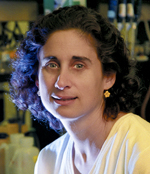Susan Birren is helping undergraduates understand autism

Susan Birren
Is autism caused by genetic or environmental factors? How early can it be diagnosed? What are the co-morbid disorders associated with autism? How does our society care for autistic adults?
For students in the United States seeking an undergraduate-level class that explores the answers to questions concerning a disease that affects one in 166 children, there are only a few options – and Brandeis is one of them. Neurobiology professor Susan Birren, with help from a grant from the Nancy Lurie Marks Family Foundation (NLMFF), teaches “Autism and Human Development Disorders.”
Not only has the class generated widespread interest among Brandeis students – originally envisioned as a small seminar course, more than 60 students enrolled last year – it has come to the attention of colleagues on other campuses. Birren has fielded inquiries from faculty at other institutions who are considering the addition of an undergraduate course on autism. Officials from Autism Speaks have also expressed interest.
“Certainly I would be pleased if faculty at other institutions see this material as an important component of undergraduate education and consider enhancing their curriculum with coursework on autism spectrum disorders,” Birren says.
While students in the class are pursuing majors in a variety of different academic areas, many share something in common: a personal connection with autism.
“It is striking how many students in the class have had some sort of experience with autism in their lives – they were a counselor at a camp with autistic kids or have a relative who is on the autistic spectrum,” Birren says. “The course helps students make sense of behaviors that can be hard to understand and students have made comments like, ‘Now I understand why my autistic cousin is doing what he’s doing.’ ”
The genesis of the course, which Birren first taught in 2004, grew out of a change in the direction of her research. She had become more interested in probing the development of the body’s central nervous system, and began to study an area of the brain that appears altered in autism-related disorders. “It became clear that my work had some relevance for understanding the developmental problems that might be important in autism,” she says.
The NLMFF, which has generously supported a variety of autism-related work at Brandeis, supported a research grant that Birren was awarded by the National Alliance of Autism Research to fund her work. The foundation also offered additional support to develop an autism course geared toward undergraduates.
While Birren and NLMFF are pleased that after taking the class some students have switched their research focus to autism-related issues, the objective of the initiative is more basic.
“The primary goal of the class is to have undergraduates leave Brandeis with a basic understanding of the neurobiology of autism spectrum disorders and some knowledge of the social and policy implications of the disorder,” Birren says. “Autism is a major public health concern in this country and an educated public is important for the many policies decisions that will made in this area.”
Among the topics covered in the class are brain development, genetics of complex human disorders, diagnostic trends, cognitive models, language and social impairments, treatment of children and adults, and societal implications.
Thanks to funding from NLMFF, each semester Birren is able to invite four or five well-respected people in the field to speak to the class. Past guest lecturers have included Margaret Bauman of Massachusetts General Hospital and Helen Tager-Flusberg of Boston University Medical School. Students also get the opportunity to enjoy one-on-one interactions with the guests at smaller gatherings before or after class.
In the future, Birren could imagine teaching a similar class aimed at students who are not science majors. “It would be have to be a very different class without the current focus on reading the primary scientific literature, but I think there would great interest in it,” Birren says. “Students really seem to have a desire to better understand autism.”





